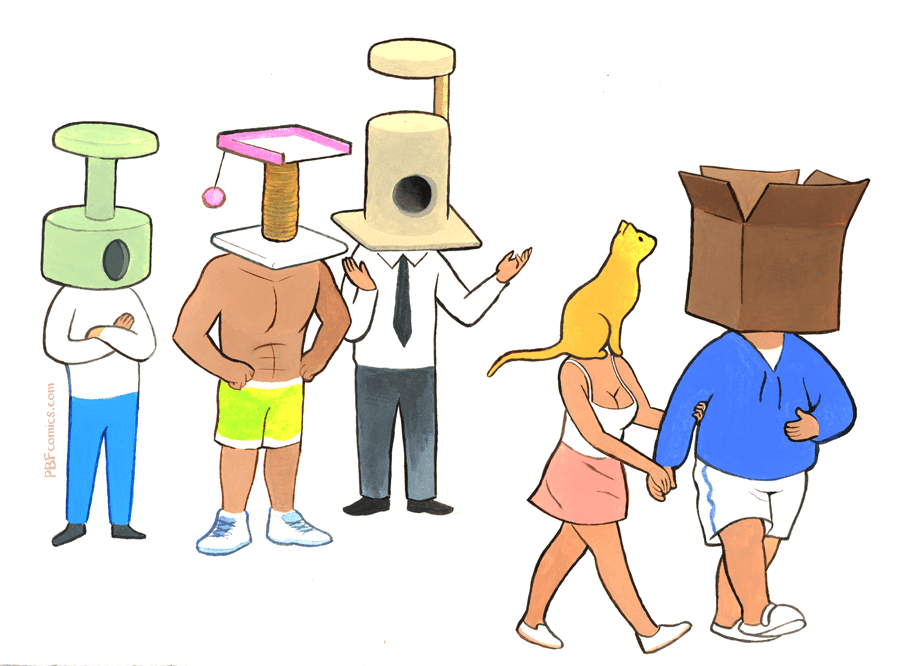
The post There’s Something About Him appeared first on The Perry Bible Fellowship.

The post There’s Something About Him appeared first on The Perry Bible Fellowship.


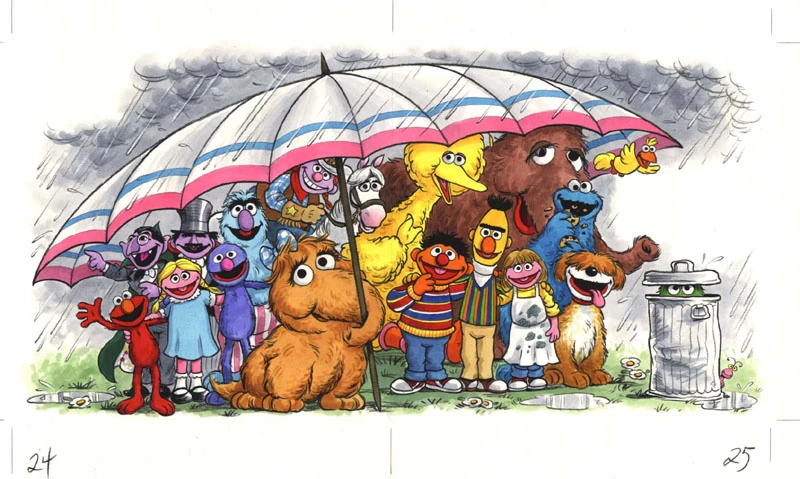
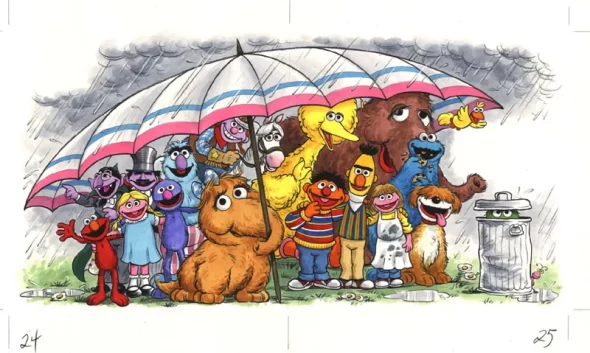
What does it mean to be a Muppet fan? Or, more importantly, what does it mean to be a fan of anything? To be a part of a fan community? I’ve been thinking a lot about this question, especially in the aftermath of the biggest fandom scandal the Muppet fan community has ever faced.
Honestly, the saga of Muppet History was more than just a Muppet fandom issue; it was an issue that spoke to the very idea of a fan community. That’s why a media source as major as The Verge eventually posted an article about it, which I suggest you read on the off-chance you somehow missed the echoes of this.
Obviously, as a longtime ToughPigs staffer and one of the head moderators of the ToughPigs Discord, this is the kind of story I felt obligated to follow. As the Verge put it, a powerful part of the fan community just fell, and it affected a lot of people that I feel responsible for.
Which brings me to a variant of my original question: what does it mean to be a powerful fan? What is a powerful fan’s role in the community?
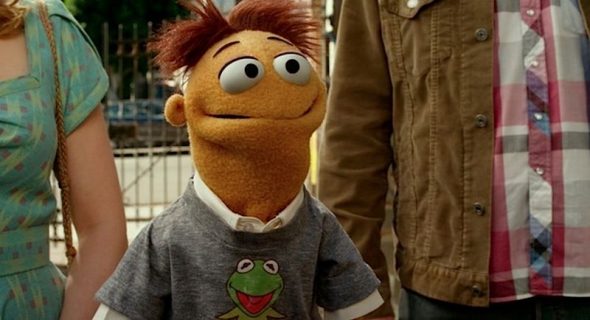
In the aftermath, ToughPigs made a statement that we believe and support the victims of Muppet History, which I’d like to reiterate before moving forward. We must believe victims, especially when there is such a strong power differential between the players. We must believe victims have their reasons for not coming forward earlier. And most importantly, we must believe that victims are more important than pictures of Gonzo.
You’d think that last point would be crushingly, maddeningly obvious. But last week, I saw many posts saying that Muppet History should have stuck around, because he brings so much joy from his content, or, most horrifyingly, that “people don’t care about this, they only care about pictures of Gonzo.” Yup.
So let me tell you a story about ToughPigs. We’ve been around since 2001, and before that, from 1992 to 1997, we were a regularly-published fanzine people subscribed to in the mail. We lasted that long because of people: specifically people’s creativity and people’s deeply felt opinions. MuppetZine was mostly just Danny Horn, but it featured art from Chris Smigliano and interviews with and commentary from professionals and fans alike. Then ToughPigs came about, and Kynan Barker and Scott Hanson joined Danny, and Martha helped moderate the early ToughPigs forum. Then Joe Hennes and Ryan Roe, then Anthony and Julia, then Matthew and Louie, then me. And so on, and so on.
Look, I don’t expect you to care about any of those names. Some of you know us, some of you don’t. You subscribe to ToughPigs to read about Miss Piggy and Elmo and SkekZok the Ritual Master, not to read about Becca Petunia. But what I do expect you to care about is that fandom only exists because of a community of real people, people just like you.
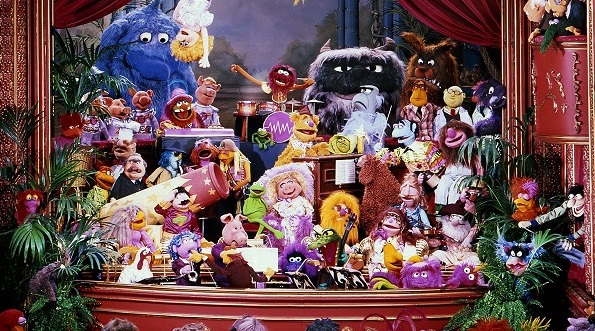
There would be no Muppet fandom if it weren’t for the people gathering screenshots and factoids for Muppet Wiki, or making hilarious podcasts, or writing insightful articles. I’m not just talking about the 14 or so regular staffers at ToughPigs, of course. It’s bigger than us. It always was bigger than us, and that’s especially true with the Internet as it currently is. And it’s not just the so-called “big fandom accounts” or just about writers. I’m not that self-centered. The fandom needs everyone: sharing headcanons, drawings, and fanfics. Or maybe you’re not here to create. That’s fine too. We need you here, sharing memes and jokes, cheering each other on, complimenting each other’s work, making friends. Being present with other people.
Because at the end of the day, a fandom is a community. Being a part of a fandom means being a part of a community. Which kind of answers my question from earlier. If you ask me, personally, I think there can’t be a titan of fandom, because a fandom only exists when it’s made up of many small parts made by countless individuals. What it means to be a major part of fandom is to support those individuals and to help make a safe space for a community.
I’d like to think my friends and I at ToughPigs have done something like this. The ToughPigs Discord exists for folks to spend time chatting with pals and sharing their ideas, for instance. But it’s not just about what we did, and I understand this. No matter who you are, if you’re making a space welcoming for other fans, you are a key part of fandom.
In that way, gatekeeping is truly the antithesis of what a fandom should be. Muppet History admits he gatekept after accusations arose that he had told other social media accounts that they weren’t “real Muppet fans.” I’d argue that’s even more proof that Muppet History was never a major player in fandom, because Muppet History was never a major part of the community. One person, posting his thoughts, rarely choosing to interact with other Muppet fans in positive ways. Muppet History was a monolith, for sure, but in a more literal definition. Mono. One. Alone.
So I’ve been thinking about all of this when I think about what it means to be a Muppet fan. And it’s weird, you know? The Muppets aren’t real. There is no Kermit the Frog. I’ve seen Kermit at the Museum of the Moving Image, and he’s not alive. He’s a well-made piece of art, but he’s ultimately just cloth and ping pong balls. Alone, he’s nothing worth being a fan of. What makes Kermit alive, what makes Kermit amazing, is people. In a textual sense, of course, there’d be no Muppet Show without all of Kermit’s friends. But I’m speaking more literally here. Kermit isn’t real without Jim Henson. But it’s not just about Jim Henson. Jim needed other puppeteers, starting with his wife Jane. He needed writers like Jerry Juhl, and puppet designers and builders like Kermit Love and Bonnie Erickson, and composers like Joe Raposo, and showrunners like Jon Stone. The list goes on, and I’m sure you know many of the names I’m leaving out.
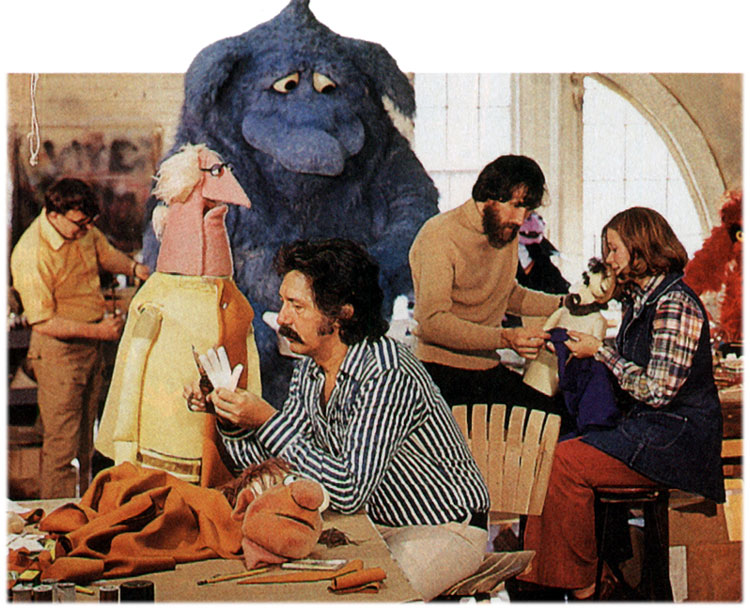
There could never have been Muppets without people working together. It was never about one person. It never could’ve been.
I think fandom is the same. It’s only real, it only matters, when we work together and support each other. In the largest way, to reiterate where I began, that means respecting each other’s boundaries, treating others as they want to be treated, and believing victims when they come forward.
However, it also means that we can work together to make something bigger and better than any one of us could ever have made alone. I want us all to look at what each other creates, to hear what we all have to say.
Personally, I want us all to share each other’s projects and comments more. We need to create inclusive spaces where everyone feels like their thoughts can be appreciated. That’s what makes us a fandom. Togetherness. Being a part of something bigger. If you ask me, that’s what it means to be a Muppet fan.
By Becca Petunia
Click here to join the community on the ToughPigs Discord.
The post Some Thoughts on Muppet Fandom appeared first on ToughPigs.

Another court ruling this month found that Japan’s prohibition against same-sex marriage violates the Constitutional rights of its citizens. Does that mean marriage equality might become law? According to one report, the votes exist to pass it now, thanks to the results of October’s House of Representatives election.
Last week, the High Court in Fukuoka ruled in a case brought by three same-sex couples against Fukuoka and Kumamoto Prefectures.
The Court ruled that preventing the couples from marrying violated the 13th Amendment of Japan’s Constitution – specifically, the plaintiff’s right to happiness, and that “no reason exists any longer” to deny them this right. It also said the denial violated the equal treatment clause of the 14th Amendment and the individual dignity protection clause of the 24th Amendment.
This case had been tried before In a lower court, which yielded a weaker ruling that the government was in a “state of unconstitutionality” by denying marriage rights to same-sex couples.
Other courts in Sapporo and Nagoya have also declared the restriction unconstitutional. However, the Fukuoka High Court’s strong language is seen as an extraordinary ruling that puts extra pressure on Japan’s central government to move on passing a marriage equality law.

Local governments around Japan have passed “partnership systems” that give same-sex couples some of the same rights as heterosexual married couples. However, these rights don’t extend to national matters such as inheritance and child custody laws. Many couples also say they still experience discrimination in areas covered by partnership laws.
Polls – even those from traditionally conservative media outlets – consistently show over 60% of people in Japan support marriage equality. However, hard-right elements of Japan’s Liberal Democratic Party (LDP; 自民党, jimintou) have prevented a marriage equality bill from becoming reality.
That could change after October’s election, though, which saw the LDP lose its majority in the House of Representatives. The LDP now works in a tenuous coalition government with the Democratic Party for the People (DPFP; 国民民主党, kokumin minshutou) and the Constitutional Democratic Party (CDP; 立件民主党, rikken minshutou).
According to Mainichi Shimbun, this means that marriage equality could become a reality. A survey it sent in October found that, of the 465 members of the House of Representatives, 52%, or 242, are in favor.
The only party that overwhelmingly opposes (or refuses to take a stand) on the issue is the LDP. Only 14% of its members said they’d vote for it. A full 87% of the CDP, 74% of the Innovation Party (維新の会; Ishin no Kai), and 64% of the DFPF approve of such a bill. Even 88% of respondents from the Komeito (公明党), the LDP’s coalition partner, said they were on board.
The only parties who seem to oppose the bill are the LDP and the two hard-right parties, Sanseito (参政党), a.k.a. The Part of Do It Yourself!!, and the Conservative Party of Japan (日本保守党; Nihon Hoshutou).
Mainichi says it’s likely a marriage equality bill would pass in the House of Councillors, the “upper house.” Additionally, the House of Representatives holds most of the power in Japan’s National Diet; if the upper house rejects a bill, the lower house can pass it by a simple majority with 2/3rds of its members present.
